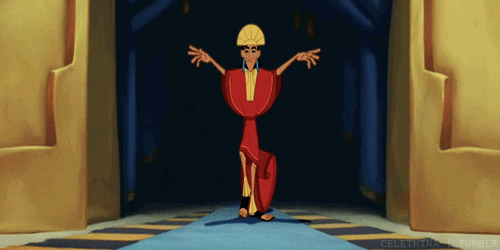Scientific innovation exists as an imaginative topic of speculation on a large cultural spectrum of the arts and dinner parties. The elderly (ages 24 and up) love to criticize tech-savvy youths while boasting self-righteous sentiments on post-modern communication networks. This person is usually a drunk dad at a holiday gathering who is bitter about growing up using literal paper maps (sorry, I am not a pirate) and actually listens to the radio. If I had to operate a vehicle without an AUX plug to play the Mickey Avalon Pandora station whilst Siri spoon feeds me directions to the nearest In-N-Out, I would be dead. Cause of death? Radio advertisement overload.
However, after watching the interview of Dr. Michio Kaku on the Daily Show, I became like my whiney generational predecessors: terrified of what the techno-scientific innovation might bring in the future and super jealous that I might not be around to benefit from it.
Dr. Michio Kaku, a theoretical physicist, recently published THE FUTURE OF THE MIND: The Scientific Quest to Understand, Enhance and Empower the Mind. I haven’t actually read it, but I don’t need to because I am a golden child of the 21 century and Jon Stewart tells me everything I need to know. Dr. Kaku’s research theorizes a future in which the human mind is entirely mapped and decoded. This concept of reverse-engineering the brain’s neural connections makes way for speculation on extrapolating human capabilities: recording and playing back memories, a smart pill to enhance cognition, virtual mind control and even a brain net to share with the world your thoughts and emotions.
The year 2015 did not bring us the flying cars that Back to the Future Part II promised in 1989, so we know the hype of science fictionality tends to overestimate. But let’s pretend that these mind theories are all very plausible and society benefits greatly from the technological saturation. More importantly, let’s evaluate what this means for me and my highly important 20 year old worldview before deeming these innovations positive for society, or inconvenient to my lifestyle.
If you can record your memories, does that relieve me from having the responsibility to remember a Thursday night? Presently, a collective screening of continuously updated Snapchat stories is enough of a weekend review. I would prefer not to go over other peoples’ memories that are longer than 10 seconds because they are most likely not funny and I have better things to do.
Are smart pills going to be available over the counter via Walgreens drive through? How many milligrams will these doses come in and could you snort it (asking for a friend)? I need to know whether or not I wil need to sell my soul to the lucky one whose corrupt psychiatrist makes it rain with prescriptions because she can’t focus.
Mind control sounds like a winner to me. At least to avoid saying, “Please pass me that phone charger. Is it a 5? You’re kidding. Well, never mind. No, it’s fine. I have eight percent left.”
Connecting memories through an emotional media networking site is where you lose me, Dr. Kaku. I am sure it sounds great to you and other genius 80 year olds to relate feelings of enlightenment. On the other hand, my timeline consists of parody accounts and cute animal memes -- brilliant. I don’t know how much I would benefit from the emotions of a One Tree Hill Netflix binge in a low-fi filter.
I can only imagine what dinner parties will be like when drunk dad #1, an avid Tinder user in college, turns to the couch-ridden group of kids on their respective telekinesis devices before bitterly exclaiming that the future is doomed. I will most likely be that drunk dad. Cheers.
Dr. Kaku will be speaking at University of Texas, Arlington on February 19.





















